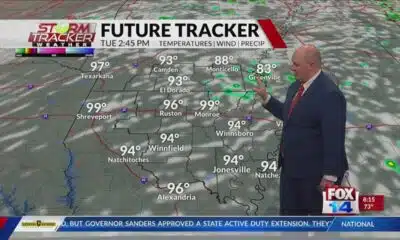(The Center Square) – Fifty-two of 104 vetoes in North Carolina’s last gubernatorial administration were overturned by the General Assembly.
Tests for first-term Democratic Gov. Josh Stein are on the way. He issued 14 in 20 days, and more than once Republican chamber leaders and their legions pledged overrides. Immigration policy is definitely a disagreement for the former top prosecutor in the state with history of multiple litigations filed against lawmakers and refusals to back them.
“Trump’s Big Beautiful Bill backs North Carolina law enforcement that works with ICE,” said Speaker Destin Hall, R-Caldwell, of the House of Representatives. But the governor “wants North Carolina to be left behind. The House will override his open border vetoes ASAP so we can make our state safer.”
The Criminal Illegal Alien Enforcement Act (House Bill 318) and North Carolina Border Protection Act (Senate Bill 153) were two vetoes from the former state attorney general.
“One of the main ways ICE does its job is in local jails,” Hall said. “So, when people are here illegally and they’re charged with crimes, ICE works with local sheriffs to detain and then deport those folks. Unfortunately, in our state right now, we have a small number of sheriffs who are completely refusing to cooperate with ICE, as insane as that may sound.
“So, we’ve taken action here at the General Assembly. We passed a bill making it clear sheriffs have to cooperate with ICE.”
Senate President Pro Tempore Phil Berger, R-Rockingham, has had similar statements from the upper chamber.
“He’d rather prioritize his far-left donors and their dangerous open-border policies over the citizens of North Carolina who are desperately pleading for us to put an end to the illegal immigration crisis,” Berger said of Stein. “I look forward to the Senate overriding his veto.”
The Criminal Illegal Alien Enforcement Act enhances cooperation with lawmen in the state and U.S. Immigration and Customs Enforcement. Local law enforcement could not release the suspect until 48 hours after ICE is notified.
Litigation is anticipated if the override happens.
“I cannot sign this bill because it would require sheriffs to unconstitutionally detain people for up to 48 hours after they would otherwise be released,” Stein said in his veto message. “The 4th Circuit is clear that local law enforcement officers cannot keep people in custody solely based on a suspected immigration violation.”
The North Carolina Border Protection Act would give protection to taxpayer dollars through eligibility assurances for state-funded public benefits such as housing tax credits, child care subsidies and caregiver support. The Office of State Budget and Management, if the bill becomes law, would determine if unauthorized immigrants are receiving such benefits.
The North Carolina Border Protection Act would instruct memorandums of agreement to be extended to the director of the U.S. Immigration and Customs Enforcement from the state’s law enforcement agencies – Department of Public Safety, Department of Adult Correction, State Highway Patrol, and the State Bureau of Investigation. Each would be lawfully ordered to determine immigration status of any person in custody.
“Senate Bill 153 would make us less safe,” Stein said. “At a time when our law enforcement is already stretched thin, this bill takes state law enforcement officers away from their existing state duties and forces them to act as federal immigration agents. Furthermore, under current law, people without lawful immigration status already are prevented from receiving Medicaid, SNAP, Section 8 and other benefits.”
In response, Hall said in a statement, “Governor Stein has made one thing clear today: he stands with criminal illegal aliens and the most radical elements of his party’s base over the safety and security of North Carolinians. Make no mistake, the NC House will override the Governor’s veto at the earliest opportunity.”
Overturning a gubernatorial veto requires three-fifths majority in each chamber. Republican majorities are 30-20 in the Senate and 71-49 in the House. Rep. Carla Cunningham, D-Mecklenburg, was the lone member of her party in either chamber to support either bill, providing an aye on the Criminal Illegal Alien Enforcement Act.
The article presents a clear ideological perspective aligned with conservative and Republican viewpoints. It emphasizes Republican criticism of Democratic Governor Josh Stein, framing his vetoes as opposing public safety and favoring “criminal illegal aliens” and “radical elements” of the Democratic base. The language used by quoted Republican officials is charged and partisan, portraying the governor negatively while supporting stricter immigration enforcement bills. Although the article includes direct quotes from the governor opposing the bills on constitutional and resource grounds, the overall framing, selection of sources, and tone suggest a right-leaning bias favoring the GOP position on immigration policy in North Carolina.












































